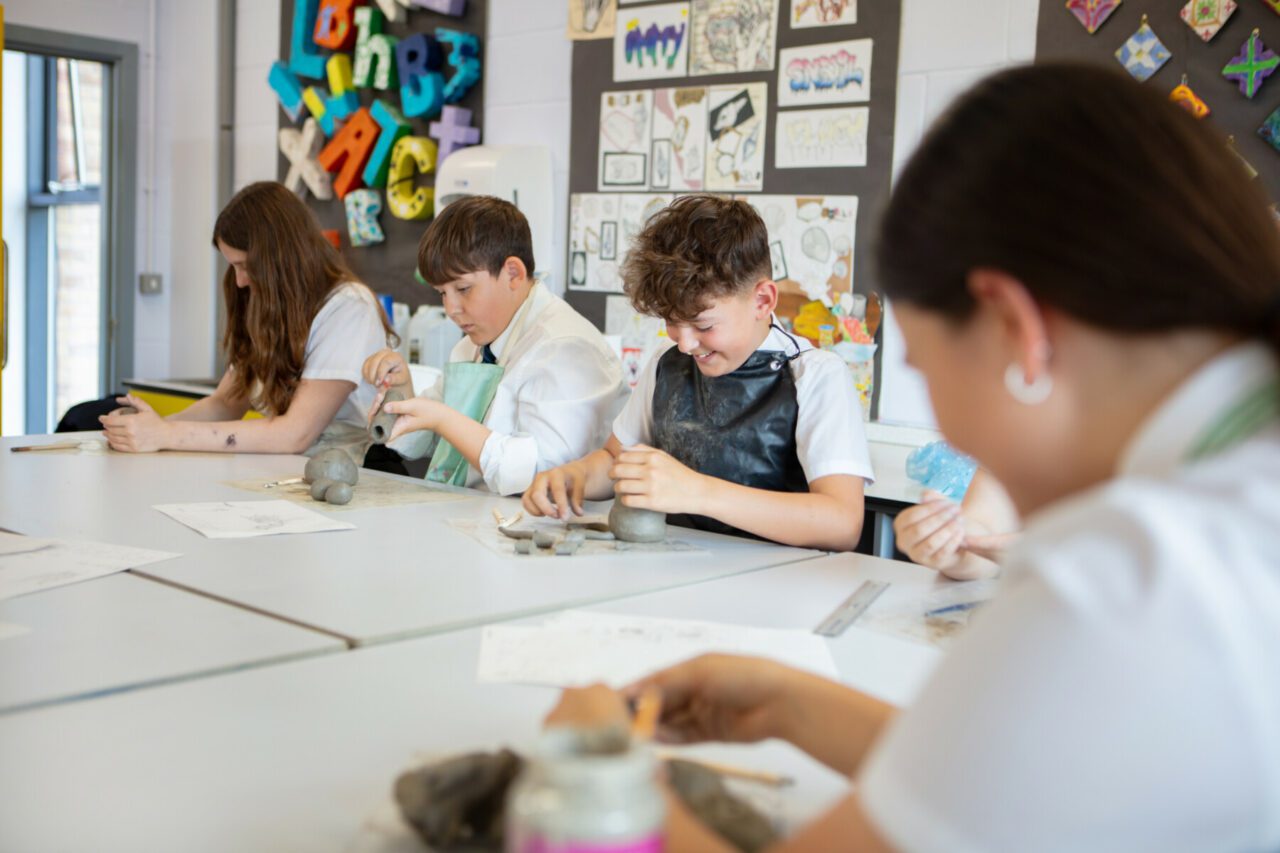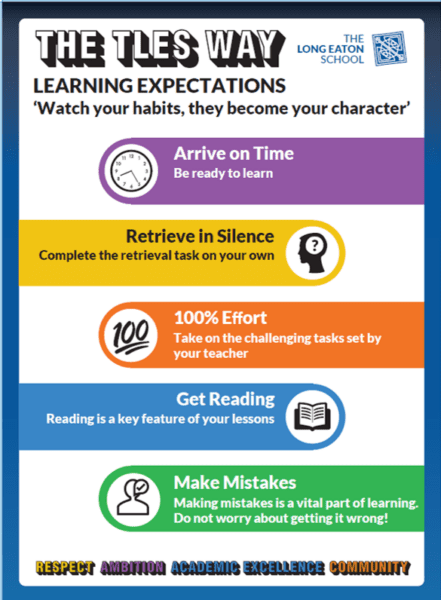
Teaching and Learning
Our approach to Teaching and Learning is informed by current research and evidence, which supports our students in knowing more and remembering more. Our lessons all take the same structure and features regular assessment to gauge the levels of student understanding. We present material in small steps, model and use guided practice to support students’ written work.
You can see the four phases and principles of our lessons below:

Retrieve
Each lesson begins with a challenging retrieval task which requires pupils to answer low-stakes questions from memory by recalling previously-learned knowledge. This helps create schemas of knowledge and increases the likelihood that the information will be transferred to long-term memory. The retrieval of knowledge and skills is spaced over increasing lengths of time, so pupils have time to forget things, and re-learn them the next time they revisit the information. Re-learning is key to strengthening memory and makes it more likely that the information will be remembered in the long term.
Instruct
Instruction refers to a range of teacher-led approaches, focused on exposition and demonstration of the substantive knowledge and disciplinary knowledge – often with an emphasis on reading. The teacher will provide explicit instruction which involves clear explanations, simple language and relatable examples. The ‘Instruct’ phase of the lesson typically follows the ‘Retrieve’ phase and shares the substantive and disciplinary knowledge that pupils need to remember and master.
Practise
The ‘Practise’ phase of the lesson follows the ‘Instruct’ phase and gives students the opportunity to further engage with the key subject knowledge. The most important aspect of every lesson is that the pupils can know more, remember more and do more of the work themselves, with increasing success and independence. Pupils need to practise what is learned to secure the knowledge and achieve success and mastery.
The most commonly used approach to practice in Archway schools is ‘I > WE > YOU’ Modelling.
- The ‘I Do’ phase often happens with a visualiser or worked example, when the teacher ‘makes thinking visible’ and builds a successful response or example.
- The ‘We Do’ phase incorporates pupils answers and thinking. Pupils might work together and discuss how they would respond to the task or activity.
- The ‘You Do’ phase is independent practice.
Secure
Once teachers are assured that Practise has been successful, they direct pupils to capture their knowledge in writing or performance. We allow ample time in all lessons for pupils to secure
their new knowledge. Scaffolds used to support independent practice are removed as much as
possible so that pupils get a chance to secure their own best work.
Our Learning Expectations
Our learning expectations of our students is clear. Students at The Long Eaton School are expected to arrive to lessons on time and begin the retrieval task in silence. Our students are expected to put 100% effort into lessons, frequently engage with reading and are not afraid to make mistakes.
